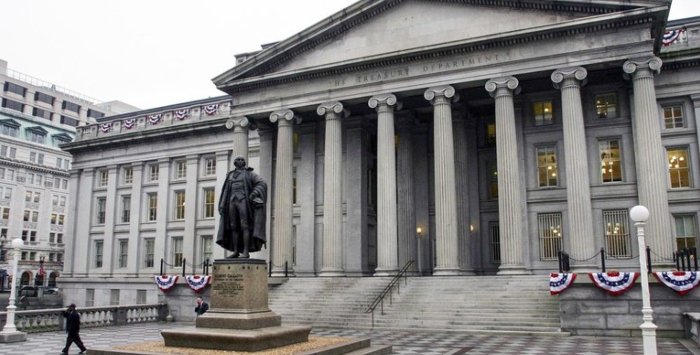on the crypto

Digital resources as a representative example of financial innovation
According to a report released last week by the Financial Stability Oversight Council, digital assets are a "particularly good example" of both the benefits and potential risks associated with innovation.
The report highlighted the ambitions of nations around the world in their experiments with central bank digital currency (CBDC) as a way to "improve the global position of their currencies and enable faster payments."
"Financial innovation offers significant benefits to consumers," the report reads. However, the report also noted that if stablecoins were to be widely adopted as a form of payment, they could upset the balance of the current financial system, ensuring "greater regulatory oversight."
Private companies offering financial services are increasingly competitive
The Financial Stability Oversight Council is tasked with identifying risks to US financial stability and encouraging market discipline by responding to the threats facing the US financial system.
The board is made up of ten voting and five non-voting members who combine the expertise of federal financial regulators, state regulators and an independent insurance expert appointed by the president of the United States, it is explained on the Treasury Department website.
E-commerce companies that provide financial services, such as Square (SQ) and PayPal (PayPal shares ticker: PYPL), they may increasingly seek to compete directly with existing financial service providers.
"Their market presence could grow significantly," according to the report. The board said these companies are not regulated in the same way that "historical financial service providers are required to comply" and this is a cause for concern.
Concern about outsourcing some key services to private third parties
The report of the Financial Stability Oversight Council also states that financial stability could be compromised if financial institutions allow the management of "key services" to third parties, creating the circumstances for which an operational failure could interrupt the activities of "more financial institutions or financial markets ".
Therefore, the Board recommended regulators to maintain a “proactive” approach in identifying new financial products and services, as well as to encourage “competent authorities” to assess the effects these services might have on the status quo. "The Council encourages ongoing coordination between federal and state regulators ... to identify and address the potential risks that result from such innovation," the report reads.
